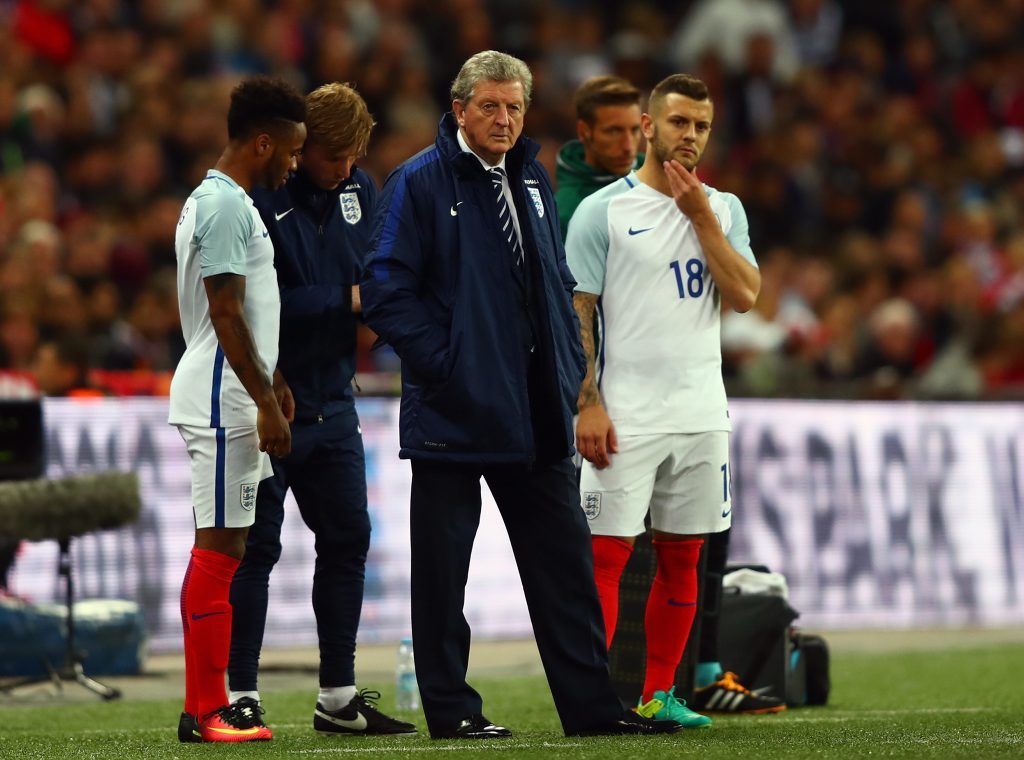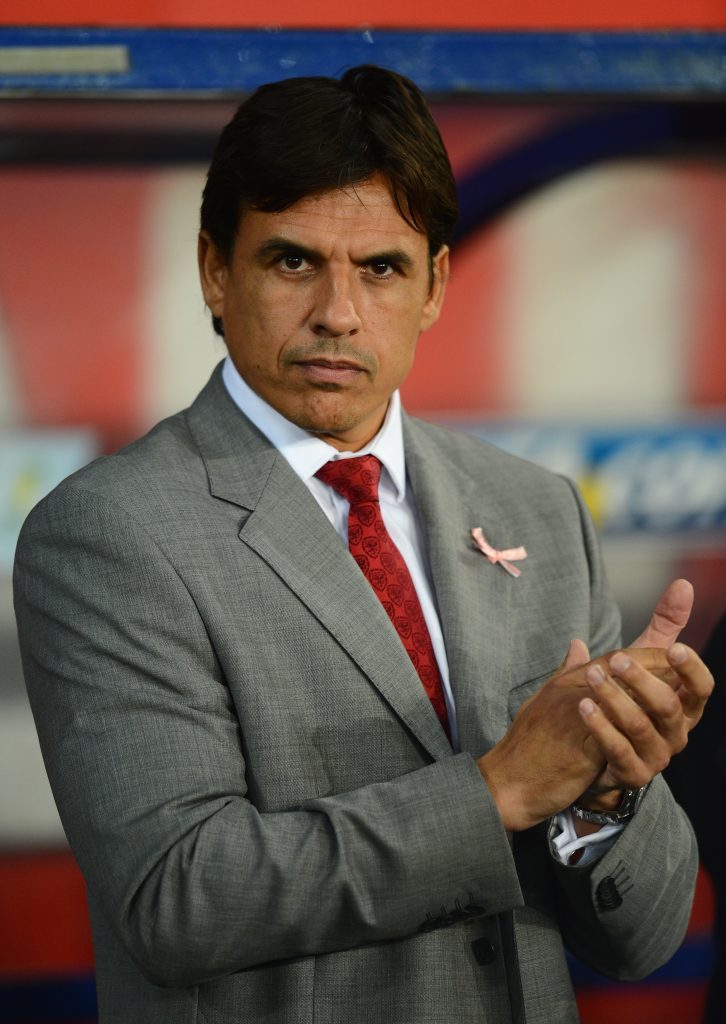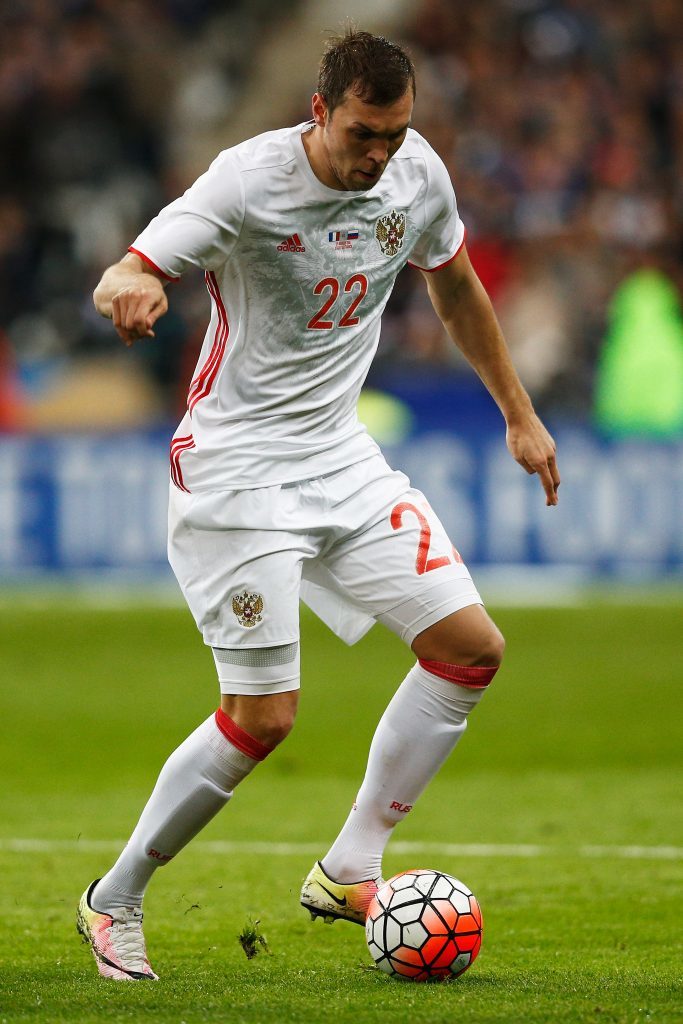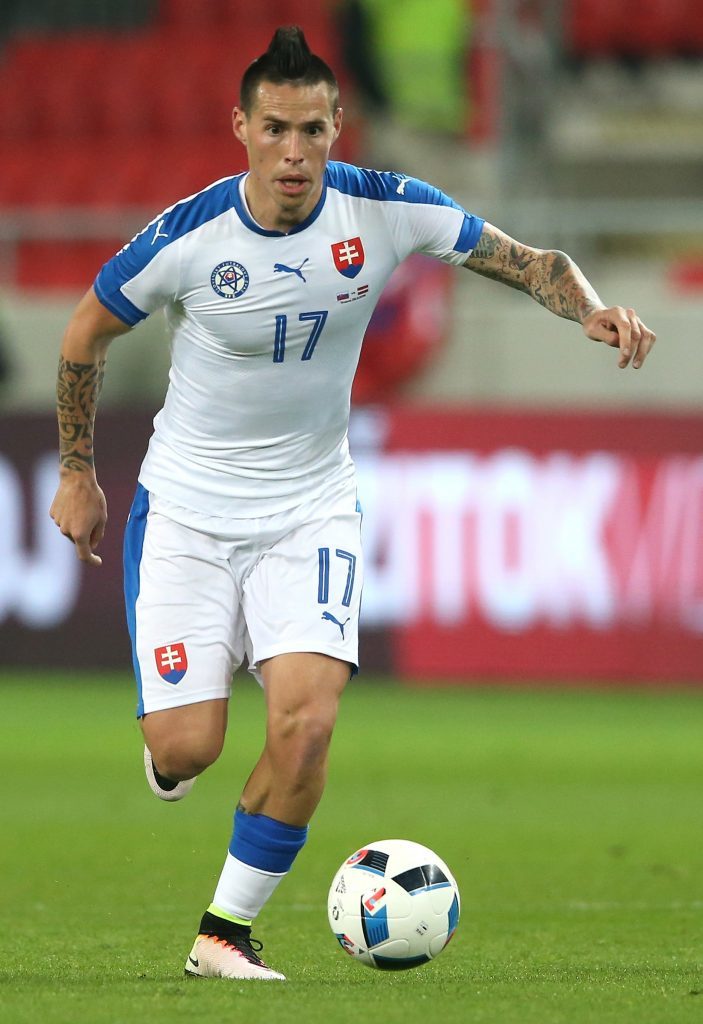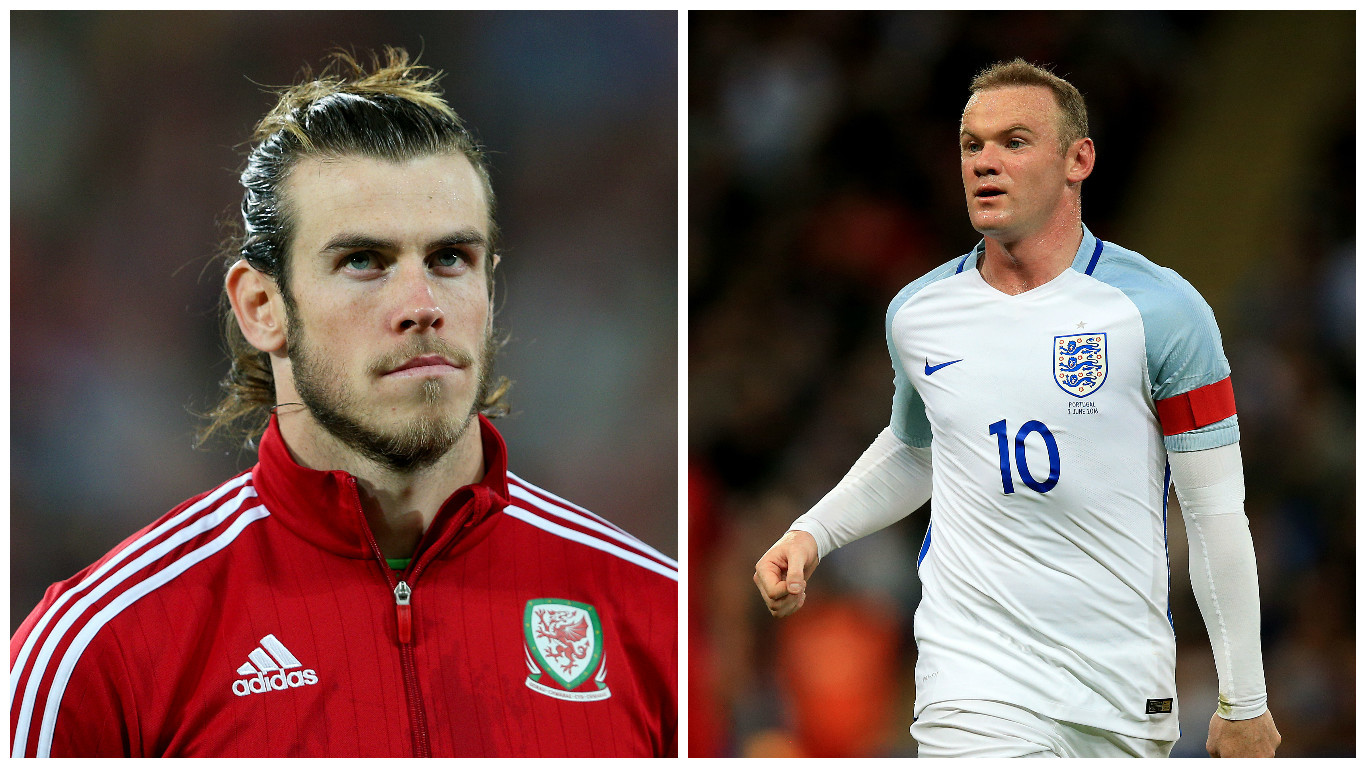
England
How they qualified: 1st in Group E – P10 W10 30pts.
Switzerland (a) 0-2; San Marino (h) 5-0; Estonia (a) 0-1; Slovenia (h) 3-1; Lithuania (h) 4-0; Slovenia (a) 2-3; San Marino (a) 0-6; Switzerland (h) 2-0; Estonia (h) 2-0; Lithuania (a) 0-3.
COACH: Roy Hodgson.
NO-ONE in the technical area at Euro 2016 will quite have his experience.
Years of learning and perfecting his craft in Sweden, Switzerland, Italy and more prepared him for his biggest challenge – being the England manager.
The oldest coach on show in France, this is the time for 68-year-old Hodgson to deliver.
He was parachuted in for the Euros four years ago and oversaw England’s group-stage exit at the World Cup.
This is his third major Finals, and a perfect qualifying record will count for absolutely nothing if this campaign ends in failure.
STAR PLAYER: Wayne Rooney.
SOME question whether he deserves a place in England’s line-up for the opening game against Russia, but that is part of the argument.
Since making his debut in 2003, Rooney has been a national obsession in England.
And it wouldn’t be a major tournament if talk did not centre on him in the build-up, with all English fans hoping he can repeat the form he first showed as a teenager at Euro 2004.
Despite now passing Sir Bobby Charlton’s record as all-time goalscorer, the focus this time is on where he should play – up front or in midfield to accommodate Harry Kane and Jamie Vardy.
ANALYSIS:
NOBODY qualified in finer style for Euro 2016 – a 100% record, with 31 goals scored. But this is where it matters for Roy Hodgson.
Opposition in Group E was weak and friendly results against the better teams in Europe have been mixed.
Since the end of qualifying, the likes of Eric Dier, Dele Alli and Jamie Vardy have emerged, and all make a strong case for a starting berth. But the formation and the make-up of the team are still up in the air.
This is where Hodgson will earn his money.
He has lots of options, and he must find the system that will bring the best out of the players at his disposal.
Will he go for Vardy and Harry Kane – with 49 Premier League goals between them this season – as a front two? Will it be a diamond or a midfield three? Where does he find a place for Wayne Rooney?
The common wisdom is that England’s strengths are going forward and there certainly look to be goals in the team. But the lack of a top-class defender leaves them vulnerable at the other end.
The expansion to 24 teams means that England would have to do spectacularly badly to go out at the group stages but reaching the last eight should be seen as a minimum requirement.
To do that, they’ll have to do something not achieved since 2006 and win a knockout game at a major tournament.
Wales
How they qualified: 2nd in Group B – P10 W6 D3 L1 21pts.
Andorra (a) 1-2; Bosnia (h) 0-0; Cyprus (h) 2-1; Belgium (a) 0-0; Israel (a) 0-3;
Belgium (h) 1-0; Cyprus (a) 0-1; Israel (h) 0-0; Bosnia (a) 2-0; Andorra (h) 2-0.
COACH: Chris Coleman.
HAD the thankless task of replacing the late Gary Speed when he got the Wales job in 2012.
It was a crucial moment in Chris Coleman’s career as after four good years in the Premier League at Fulham, his reputation was on the skids after difficult club spells in Spain and Greece.
After a poor start when he was caught between honouring his close friend’s legacy and trying to stamp his own authority on the team, Coleman has turned things round in spectacular style.
STAR MAN: Gareth Bale.
WALES may be novices in the European Championships, but having Bale in their ranks gives them a huge shot of confidence.
He arrives in France off the back of winning his second Champions League medal in three years at the Bernabeu following his world record £85m transfer from Tottenham.
He is happy to take on the talisman role, and his pace and physical strength means every opponent will pay close attention to him. Stopping him is another matter.
ANALYSIS:
AFTER years in the wilderness, comprising a series of close shaves and abject failures, Wales have finally made it to a major tournament for the first time since the 1958 World Cup.
It was an honour that escaped great players of the past like Ian Rush, Neville Southall, Mark Hughes and Ryan Giggs. So the Welsh are determined to make the most of this opportunity. In Gareth Bale, they have a world-class player who will allow them to dream.
Coleman has a game plan that makes them competitive against anybody. Bale will nominally play behind a lone front-man in Reading’s Hal Robson Kanu, but he has the freedom to play wherever he likes across the forward line.
His pace provides an outlet and means they always carry a goal threat. Behind him, there is a strong back five which is expertly marshalled by captain Ashley Williams and a well-balanced three in midfield.
The plan worked a treat in qualifying, with seven clean sheets in defence and seven goals from Bale, guaranteeing their place at the Euros.
Back in 1958, Wales did better than England and reached the quarter-finals only to lose to eventual winners Brazil. A similar scenario 58 years on would be lauded in the Valleys.
Russia
How they qualified: 2nd in Group G; P10 W6 D2 L2.
Liechtenstein (h) 4-0; Sweden (a) 1-1; Moldova (h) 1-1; Austria (a) 1-0; Montenegro (a) 0-3 ** (forfeit); Austria (h) 0-1; Sweden (h) 1-0; Liechtenstein (a) 0-7; Moldova (a) 1-2; Montenegro (h) 2-0.
COACH: Leonid Slutsky.
HE has been a very busy man in the build-up, as just two weeks ago, he was guiding CSKA Moscow to the Russian title, having balanced a club-and-country role all season.
Slutsky was appointed last summer when Fabio Capello, along with his hefty salary, was sacked with the Russians looking like they might miss out on the Euros.
The replacement secured four wins out of four to get the job done, but his contract is up after the Finals.
STAR PLAYER: Artem Dyzuba
THE Russians were dealt a major blow when midfielder Alan Dzagoev suffered a broken
foot.
So responsibility will fall upon striker Artem Dyzuba, who scored eight times in the qualifiers. He also had an excellent run of scoring in the Champions League last season for Zenit St Petersburg, and is full of confidence.
At 6ft 5in, he will give Russia a different option in attack where his aerial prowess could cause problems to England’s shaky defence.
ANALYSIS:
RUSSIA have been one of the great enigmas of world and European football for a long time.
For a country with such a huge population, their performances on the biggest stage simply haven’t been good enough.
Under the banner of the USSR, they were Euros specialists, winning the inaugural one in 1960 and being runners-up three times.
But since the USSR broke up and Russia have been on their own, they have usually been also-rans, only getting past the group stages at one of their last seven Euros or World Cups.
Guus Hiddink’s team at Euro 2008 broke the mould, reaching the semi-finals where they were beaten by eventual winners, Spain.
A strong second half to qualifying rescued this campaign but this is not the most-talented Russian squad ever assembled.
All but one of the 23 players are based at home, with over half coming from either CSKA Moscow or Zenit St Petersburg.
The Russians won’t be the most dynamic team, so expect a slow possession game to try and wear down their opponents.
With the World Cup in their own backyard in two years, Russia will want a strong showing to boost confidence back home.
Slovakia
How they qualified: 2nd in Group C; P10 W7 D1 L2 22pts.
Ukraine (a) 0-1; Spain (h) 2-1; Belarus (a) 1-3; Macedonia (a) 0-2; Luxembourg (h) 3-0; Macedonia (h) 2-1; Spain (a) 2-0; Ukraine (h) 0-0; Belarus (h) 0-1; Luxembourg (a) 2-4.
COACH: Jan Kozak.
WON 55 caps for the old Czechoslovakia. He was previously in charge of Slovakian club FC Kosice on four separate occasions and even took them into the Champions League, before he was made national coach in 2013.
Feisty, having once grabbed the throat of an opposing team’s goalkeeping coach. That reputation nearly cost him dearly as Slovakian fans were unsure if he was the right man for them.
Kozak has rebuilt the side and ensured they can now compete at their first Euros.
STAR PLAYER: Marek Hamsik.
HE will certainly stand out from the crowd. Never mind his ability, his eccentric hairstyle and vast array of tattoos will see him easily recognised.
But Hamsik stands heads and shoulders above the rest in terms of importance. He has been a consistent performer at Napoli for nine seasons where he is now captain, re-establishing the club as one of the strongest in Italy, even if the Serie A title has proved elusive.
He can operate in midfield or attack, but in the qualifiers was used in a more advanced role.
ANALYSIS:
THOSE of an English or Welsh persuasion, who thought that Slovakia were going to be the whipping boys of Group B, only need to look at events in Augsburg last Sunday.
The Slovaks came from a goal down to beat Germany 3-1 with goals from Marek Hamsik, Michal Duris and Juraj Kucka. The result was an embarrassment for the hosts, but it also showed that Slovakia should not be taken lightly by anybody.
That was also the case when they made their only other appearance at a major tournament at the 2010 World Cup in South Africa. A 3-2 victory over Italy in the final group match was enough to send them through to the last-16 at the expense of the defending champions.
Ten players who were at the World Cup will be on duty in France, and captain and star man Hamsik and Liverpool centre-half Martin Skrtel remain the most recognisable and important players.
Kozak’s team has a solid defence but over-reliance on Hamsik for the creative spark could be the biggest problem. Only three forwards have been named in the 23-man squad.
READ MORE
Group A preview: Hosts France hoping for hat-trick of major wins
Group C preview: No matter what, Northern Ireland’s O’Neill is a legend
Group D preview: Spain can surprise with new approach
Group E preview: Republic of Ireland rely on the Quiet Man and the Raging Bull

Enjoy the convenience of having The Sunday Post delivered as a digital ePaper straight to your smartphone, tablet or computer.
Subscribe for only £5.49 a month and enjoy all the benefits of the printed paper as a digital replica.
Subscribe